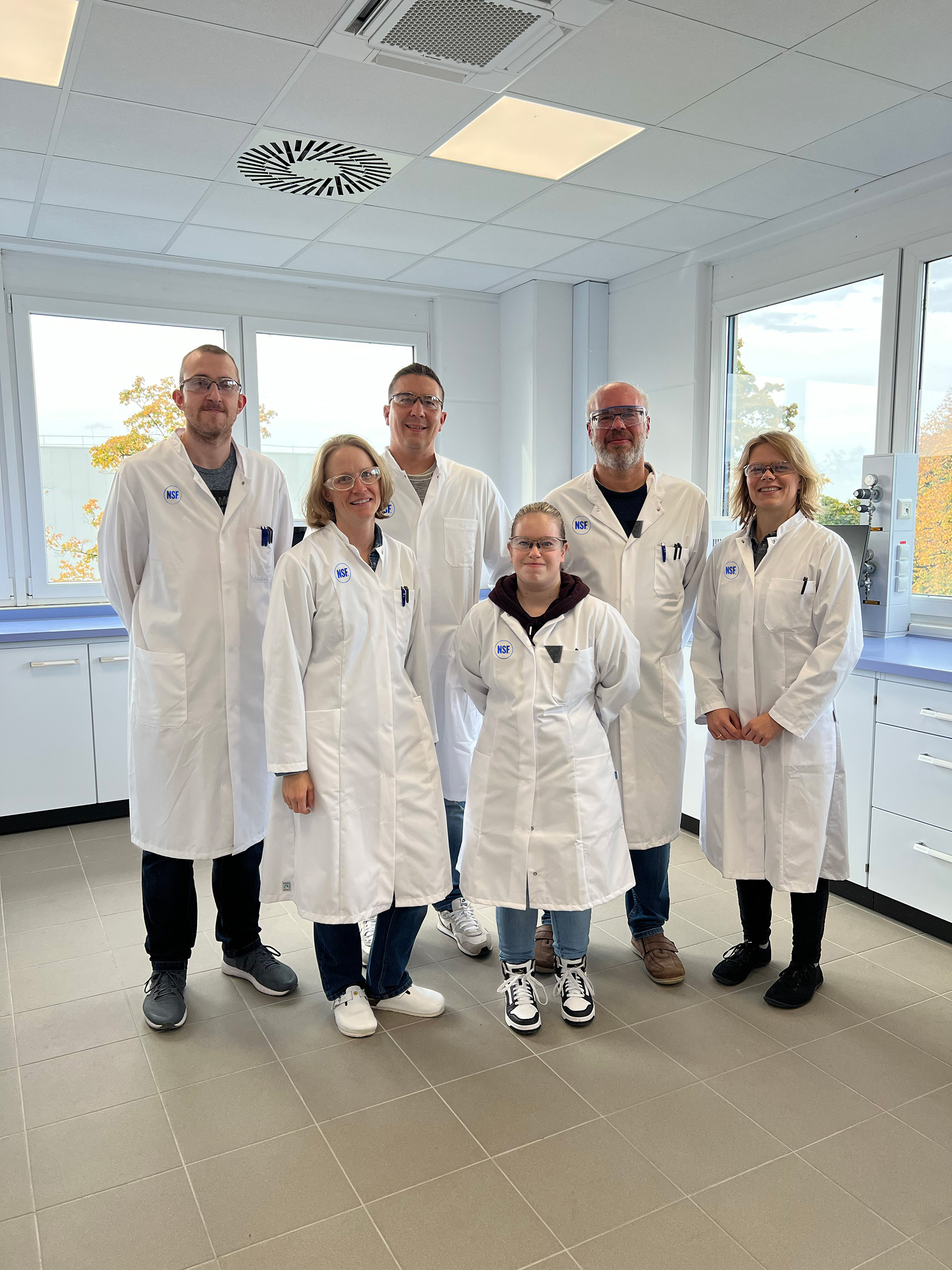Case Study: Poly Processing Looks to NSF for Chemical Storage Tank Certification


Poly Processing has been a leader in cross-linked polyethylene chemical tanks since 1970, dedicated to storage safety and raising the bar of the industry. With manufacturing facilities in California, Louisiana and Virginia, Poly produces tanks used primarily for water and wastewater treatment applications, serving municipal as well as industrial clients across North America. Its products are utilised widely in both front-end and back-end cleaning and purification processes.
The Challenge
The chemicals used in municipal and industrial water and wastewater treatment — including sodium hypochlorite, sulphuric acid, hydrochloric acid and peracetic acid — can be extremely hazardous, so their safe storage is of the utmost importance.

Poly Processing developed its state-of-the-art cross-linked polyethylene storage tanks to address this challenge by preventing leaks, corrosion and contamination. And in 2002, the company saw an urgent need in the marketplace for certification to ensure the safety and efficacy of its product line — so it turned to NSF.
“For us, NSF was really a requirement by the water treatment industry,” explains Marshall Lampson, Marketing Manager for Poly. At the time, however, NSF certification for chemical storage tanks was still fairly new, which meant there was a learning curve on both sides. “We had to work through all the testing protocols, but we paved the way in the industry by looking to NSF for certification.”
The Solution
Developed by NSF and the American National Standards Institute (ANSI), NSF/ANSI/CAN 61 is the most recognised health effects standard for municipal water treatment systems and products. Required by almost all U.S. states and Canadian provinces and territories, the standard sets health criteria for chemical contaminants that may leach from materials, components and devices into drinking water.
In other words, NSF/ANSI/CAN 61 certification was a crucial asset to Poly Processing — and not just for its tank walls, but for its complete chemical storage systems.
“NSF certifies our systems, which includes all the fittings, gaskets and accessories,” says Randy Zimmer, Director of Sales and Marketing at Poly. “A lot of others in the industry only NSF-certify their tank walls. We have the entire system certified, and that shows in our NSF listing.”
All Poly tanks are exposed to a range of water treatment chemicals for a period specified by NSF, and then each chemical is analysed for the presence of any chemical compounds that may have leached from the tank itself. If there are no detectable leachants or the leachants fall within the acceptable criteria, the tank passes the test.
“It’s been very smooth,” notes Zach Ranck, National Operations Director for Poly, regarding the testing and auditing process. “Working with NSF has been easy. Even recently, since the COVID era, we’ve been doing our audits virtually, and that’s been very smooth as well.”
The Results
Poly Processing has benefited from its work with NSF in several key ways, including:
- Robust certification. Poly’s complete XLPE tank systems — from the tank itself down to the bolt washers — currently have NSF/ANSI/CAN 61 certification for 38 of the most popular water treatment chemicals. Poly tanks are certified for both potable water and chemical storage.
- Industry recognition. “NSF certification has helped us continue to be the industry leader in rotational moulded tanks,” Lampson says. Zimmer adds, “Our certification lets the whole chem-feed community see that we’re not in a bubble. It goes back to a sense of confidence for customers that we’re providing the best products.”
- An edge in the marketplace. On an annual basis, 42% of Poly’s quotes to potential clients are looking for NSF-certified systems. “NSF certification comes up every day in conversation,” Lampson notes. “We hear that from a marketing and sales perspective all the time.”
For 20 years and counting, NSF/ANSI/CAN 61 certification has helped Poly Processing remain at the forefront of the chemical storage industry — driven by a commitment to the highest safety standards and a spirit of continuous growth and improvement.
“When it comes to NSF,” Zimmer says, “it was about bringing peace of mind and confidence to customers. We really did lead the industry into this. There was nobody doing it before us when we started certifying our systems with NSF.”
NSF/ANSI/CAN 61 Certification
Ready To Begin the Process?
Contact us with questions or to receive a quote.
Resources
How NSF Can Help You
Get in touch to find out how we can help you and your business thrive.

What’s New with NSF

NSF Research Reveals Brits Demand Greater Clarity, Transparency and Standardisation in Food Labelling
January 8, 2025
Brooklands New Media’s Publication On NSF’s Global Animal Wellness Standards (GAWS) Not Endorsed by NSF
November 25, 2024
NSF Announces Participation in Sustainable Foods 2025, CNBC Docuseries
November 18, 2024



